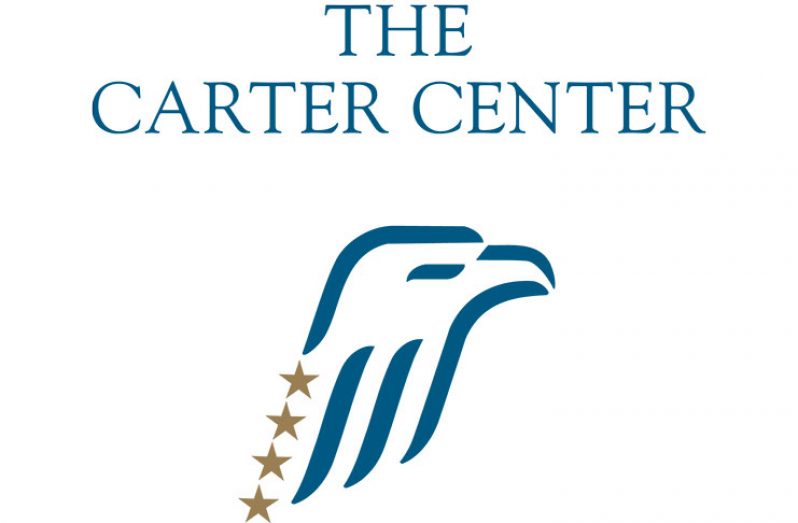THE CARTER Center in its report on the May 2015 General and Regional elections in Guyana has recommended that there be the establishment of a clear and reasonable timeline for the resolution of election complaints and petitions.
In its report released earlier this month, the Center said the National Assembly should consider the revision of the Validity of Elections Act 1964 or any subsequent legislation to ensure that reasonable time limits are in place to ensure the adjudication of any election complaints and petitions.
“Currently in Guyana, cases including election petitions can be active for years and for longer than the duration of the body or government whose election is being contested. Amendment of the law should provide for timely and effective remedies to those aggrieved in the electoral process,” the report stated.
Over the years, political parties have challenged through the courts, elections results but the conclusion of those elections petitions were part of lengthy court processes. In 1998, just after the December 15, 1997 elections, Ester Perreira had filed a petition under Articles 60, 162 and 163 of the Constitution, the Representation of the People Act Cap. 1:03 and the National Assembly (Validity of Elections) Act Cap. 1:04 contending that the elections were not free, fair and valid.
That petition was heard by Justice Claudette Singh and was subject to several adjournments which resulted in the hearing of the evidence taking more than two years to conclude. Justice Singh gave her ruling in January 2001 when she found that there was no fraudulent intention by any person and that though there were irregularities and illegalities, she was unable to hold that illegal voting by those not registered to vote would have affected the results of the 1997 elections.
Similarly, in 2006, the Alliance for Change (AFC) had filed an election petition over a parliamentary seat for Region 10. The petition filed by Walter Melville, an AFC member claimed that they had won the parliamentary seat for Region 10, though it was given to the People’s Progressive Party (PPP); the ruling party at the time.
The party had contended that it possessed certified statements of poll to show it won the seat. Additionally, Party leader Raphael Trotman had said that the AFC had won more votes than the PPP in Region 10 and as such, the seat should have been assigned to his party.
It took three years before the petition could be heard by former Chief Justice (ag) Ian Chang. It was first heard by the then Chief Justice, Carl Singh but no decision was handed down and fell within the backlog of High Court cases; the case file had also gone missing.
Meanwhile, in 2015, the PPP’s Opposition Member of Parliament, Ganga Persaud filed an election petition on behalf of his party challenging the validity of the May 2015 General and Regional Elections. He claimed that the elections were “unlawfully conducted” and that the result of the elections was affected or might have been affected by unlawful acts or omissions.
Chief Elections Officer (CEO) of the Guyana Elections Commission (GECOM), Keith Lowenfield, challenged the petition via a summons and retired Chief Justice Chang had ruled that the summons filed by Lowenfield was hasty. The CEO through his attorney Roysdale Forde filed an appeal against Justice Chang’s decision on 14 grounds, among which it was contended that Justice Chang erred in law when he failed to direct his mind to the summons and examine specific paragraphs of the petition to be struck out for being in breach of Section 140 of the Representation of the People’s Act.
It is unclear when the case would be heard at the Court of Appeal.
Meanwhile, the Carter Center has also called for provision to be made for legal complaints to be filed prior to elections. In its report, the entity said there is no opportunity for anyone, neither candidate nor voter, to make a complaint related to the conduct of the elections or to the nomination of a candidate, in any forum. “The legal framework should be revised to allow for the filing of complaints in the pre-election period, and the electoral calendar adjusted accordingly. The electoral calendar should be revised to provide for an earlier nomination date of candidates, while a facility should be created in electoral law (the Representation of the People Act, 1964, or any new legislation that may supersede it) allowing for complaints to be made to GECOM, with attendant adjudication powers conferred on GECOM, with a right of appeal,” the report stated.




.jpg)









